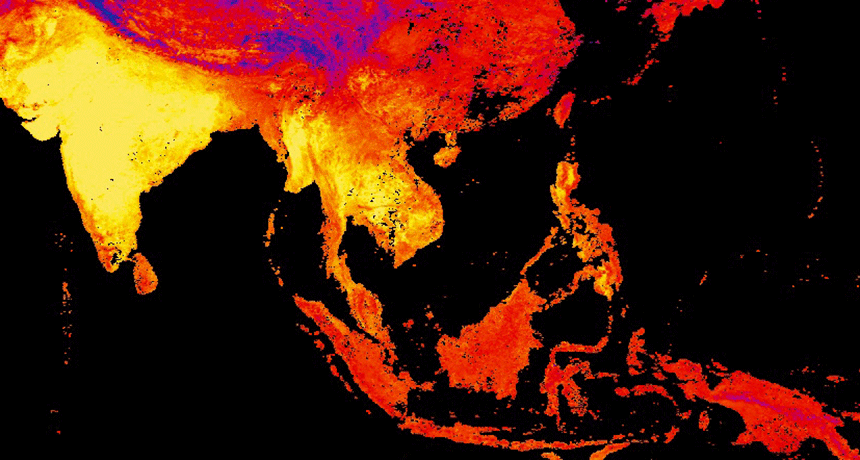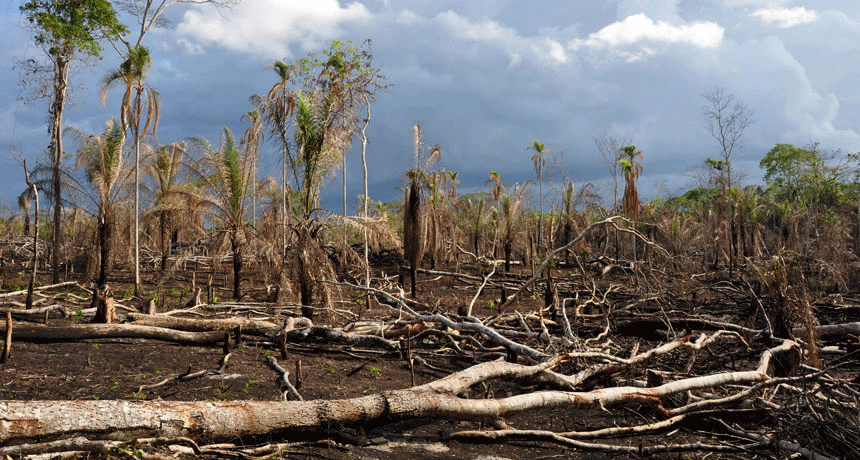
Carolyn is the Earth & Climate writer at Science News. Previously she worked at Science magazine for six years, both as a reporter covering paleontology and polar science and as the editor of the news in brief section. Before that she was a reporter and editor at EARTH magazine. She has bachelor’s degrees in Geology and European History and a Ph.D. in marine geochemistry from MIT and the Woods Hole Oceanographic Institution. She’s also a former Science News intern.

All Stories by Carolyn Gramling
-
 Earth
EarthHow long will Kilauea’s new eruption last?
A government volcano expert answers burning questions about the ongoing Kilauea eruption.
-
 Oceans
OceansMore than half the world’s ocean area is actively fished
Fleets harvest fish from 55 percent of the world’s total ocean area. Just a handful of countries play an outsized role fishing the open ocean, far from coasts.
-
 Life
LifeDefining a dinosaur is now far harder
New fossil finds are making it difficult to say for certain what makes dinosaurs unique.
-
 Climate
ClimateSuper-tiny pollutants may help fire up fierce storms
Tiny pollutant particles floating in air may help create clouds and wind, strengthening storms.
-
 Animals
AnimalsRising carbon dioxide could leave tiny lake dwellers defenseless
Rising carbon dioxide in freshwater lakes may change how predators and prey interact.
-
 Animals
AnimalsJackpot! Hundreds of fossilized pterosaur eggs unearthed in China
A trove of fossilized pterosaur eggs and embryos offer tantalizing clues to the winged reptiles’ early development.
-
 Climate
ClimateScientists at last link some extreme weather to human activities
Scientists say that research shows several of 2016’s extreme weather events would never have happened without the help of human-caused climate change.
-

-
 Animals
AnimalsTiny T. rex arms were built for combat
The fearsome T. rex had more than a mouth full of killer teeth. Its relatively tiny arms also could have served in close combat as powerful slashers.
-
 Climate
ClimateTropics may now emit more carbon dioxide than they absorb
Analyses of satellite images suggest that degraded forests now release more carbon than they store.
-
 Climate
ClimateThawing mosses tell a climate change tale
Plants long entombed beneath Canadian ice are now emerging. They’re telling a story of warming unprecedented in the history of human civilization.
-
 Chemistry
ChemistrySuper-chilled imaging technique brings its developers the Nobel Prize in chemistry
Three men who helped develop a super-high-resolution imaging technique for proteins, viruses and more received the 2017 Nobel Prize in chemistry.